
List of current monarchs
Encyclopedia
There are currently 45 monarchs in the world reigning as sovereign
heads of state
. A monarch
is the person who heads a monarchy
, a form of government in which a state or polity is ruled by an individual who normally rules for life
or until abdication
, and typically inherits
the throne by birth. Monarchs may be autocrats
(as in many absolute monarch
ies) or may be ceremonial
figureheads who exercise only reserve power
, with actual authority vested in a parliament
or other governing bodies (as in many constitutional monarch
ies). In many cases, a monarch will also be linked
with a state religion. Most states only have a single monarch at any given time, although a regent
may rule when the monarch is a minor
, not present
, or otherwise incapable
of ruling. Cases in which two monarchs rule simultaneously over a single state, as is the current situation in Andorra, are known as coregencies.
Monarchs are distinguished by their titles
and styles
, which in most cases are defined by tradition, and guaranteed under the state's constitution
. A variety of titles are applied in English; for example, "king" and "queen", "prince" and "princess", "emperor" and "empress". Although they will be addressed differently in their local languages, the names
and titles in the list below have been styled using the common English equivalent. Roman numerals
, used to distinguish related rulers with the same name, have been applied where typical.
In political and sociocultural studies, monarchies are normally associated with hereditary rule
; most monarchs, in both historical and contemporary contexts, have been born and raised within a royal family
. Succession
has been defined using a variety of distinct formulae, such as proximity of blood
, primogeniture
, and agnatic seniority
. Some monarchies, however, are not hereditary, and the ruler is instead determined through an elective
process; a modern example is the throne of Malaysia. These systems defy the model concept of a monarchy, but are commonly considered as such because they retain certain associative characteristics. Many systems use a combination of hereditary and elective elements, where the election or nomination of a successor is restricted to members of a royal bloodline
.
Entries below are listed beside their respective dominions, which are organised alphabetically. These monarchs reign as head of state in their respective sovereign state
s. Monarchs reigning over a constituent division, cultural or traditional polity are listed under constituent monarchs. For current claimants to abolished thrones, see pretenders.
Sovereignty
Sovereignty is the quality of having supreme, independent authority over a geographic area, such as a territory. It can be found in a power to rule and make law that rests on a political fact for which no purely legal explanation can be provided...
heads of state
Head of State
A head of state is the individual that serves as the chief public representative of a monarchy, republic, federation, commonwealth or other kind of state. His or her role generally includes legitimizing the state and exercising the political powers, functions, and duties granted to the head of...
. A monarch
Monarch
A monarch is the person who heads a monarchy. This is a form of government in which a state or polity is ruled or controlled by an individual who typically inherits the throne by birth and occasionally rules for life or until abdication...
is the person who heads a monarchy
Monarchy
A monarchy is a form of government in which the office of head of state is usually held until death or abdication and is often hereditary and includes a royal house. In some cases, the monarch is elected...
, a form of government in which a state or polity is ruled by an individual who normally rules for life
Life tenure
A life tenure or service during good behaviour is a term of office that lasts for the office holder's lifetime , unless the office holder is removed from office for cause under extraordinary circumstances or chooses to resign.Judges and members of some upper chambers have life tenure...
or until abdication
Abdication
Abdication occurs when a monarch, such as a king or emperor, renounces his office.-Terminology:The word abdication comes derives from the Latin abdicatio. meaning to disown or renounce...
, and typically inherits
Inheritance
Inheritance is the practice of passing on property, titles, debts, rights and obligations upon the death of an individual. It has long played an important role in human societies...
the throne by birth. Monarchs may be autocrats
Autocracy
An autocracy is a form of government in which one person is the supreme power within the state. It is derived from the Greek : and , and may be translated as "one who rules by himself". It is distinct from oligarchy and democracy...
(as in many absolute monarch
Absolute monarchy
Absolute monarchy is a monarchical form of government in which the monarch exercises ultimate governing authority as head of state and head of government, his or her power not being limited by a constitution or by the law. An absolute monarch thus wields unrestricted political power over the...
ies) or may be ceremonial
Traditional authority
Traditional authority is a form of leadership in which the authority of an organization or a ruling regime is largely tied to tradition or custom...
figureheads who exercise only reserve power
Reserve power
In a parliamentary or semi-presidential system of government, a reserve power is a power that may be exercised by the head of state without the approval of another branch of the government. Unlike a presidential system of government, the head of state is generally constrained by the cabinet or the...
, with actual authority vested in a parliament
Parliament
A parliament is a legislature, especially in those countries whose system of government is based on the Westminster system modeled after that of the United Kingdom. The name is derived from the French , the action of parler : a parlement is a discussion. The term came to mean a meeting at which...
or other governing bodies (as in many constitutional monarch
Constitutional monarchy
Constitutional monarchy is a form of government in which a monarch acts as head of state within the parameters of a constitution, whether it be a written, uncodified or blended constitution...
ies). In many cases, a monarch will also be linked
Divine Right of Kings
The divine right of kings or divine-right theory of kingship is a political and religious doctrine of royal and political legitimacy. It asserts that a monarch is subject to no earthly authority, deriving his right to rule directly from the will of God...
with a state religion. Most states only have a single monarch at any given time, although a regent
Regent
A regent, from the Latin regens "one who reigns", is a person selected to act as head of state because the ruler is a minor, not present, or debilitated. Currently there are only two ruling Regencies in the world, sovereign Liechtenstein and the Malaysian constitutive state of Terengganu...
may rule when the monarch is a minor
Minor (law)
In law, a minor is a person under a certain age — the age of majority — which legally demarcates childhood from adulthood; the age depends upon jurisdiction and application, but is typically 18...
, not present
Absenteeism
Absenteeism is a habitual pattern of absence from a duty or obligation. Traditionally, absenteeism has been viewed as an indicator of poor individual performance, as well as a breach of an implicit contract between employee and employer; it was seen as a management problem, and framed in economic...
, or otherwise incapable
Capacity (law)
The capacity of both natural and legal persons determines whether they may make binding amendments to their rights, duties and obligations, such as getting married or merging, entering into contracts, making gifts, or writing a valid will...
of ruling. Cases in which two monarchs rule simultaneously over a single state, as is the current situation in Andorra, are known as coregencies.
Monarchs are distinguished by their titles
Royal and noble ranks
Traditional rank amongst European royalty, peers, and nobility is rooted in Late Antiquity and the Middle Ages. Although they vary over time and between geographic regions , the following is a reasonably comprehensive list that provides information on both general ranks and specific differences.-...
and styles
Style (manner of address)
A style of office, or honorific, is a legal, official, or recognized title. A style, by tradition or law, precedes a reference to a person who holds a post or political office, and is sometimes used to refer to the office itself. An honorific can also be awarded to an individual in a personal...
, which in most cases are defined by tradition, and guaranteed under the state's constitution
Constitution
A constitution is a set of fundamental principles or established precedents according to which a state or other organization is governed. These rules together make up, i.e. constitute, what the entity is...
. A variety of titles are applied in English; for example, "king" and "queen", "prince" and "princess", "emperor" and "empress". Although they will be addressed differently in their local languages, the names
Regnal name
A regnal name, or reign name, is a formal name used by some monarchs and popes during their reigns. Since medieval times, monarchs have frequently chosen to use a name different from their own personal name when they inherit a throne....
and titles in the list below have been styled using the common English equivalent. Roman numerals
Roman numerals
The numeral system of ancient Rome, or Roman numerals, uses combinations of letters from the Latin alphabet to signify values. The numbers 1 to 10 can be expressed in Roman numerals as:...
, used to distinguish related rulers with the same name, have been applied where typical.
In political and sociocultural studies, monarchies are normally associated with hereditary rule
Hereditary monarchy
A hereditary monarchy is the most common type of monarchy and is the form that is used by almost all of the world's existing monarchies.Under a hereditary monarchy, all the monarchs come from the same family, and the crown is passed down from one member to another member of the family...
; most monarchs, in both historical and contemporary contexts, have been born and raised within a royal family
Royal family
A royal family is the extended family of a king or queen regnant. The term imperial family appropriately describes the extended family of an emperor or empress, while the terms "ducal family", "grand ducal family" or "princely family" are more appropriate to describe the relatives of a reigning...
. Succession
Order of succession
An order of succession is a formula or algorithm that determines who inherits an office upon the death, resignation, or removal of its current occupant.-Monarchies and nobility:...
has been defined using a variety of distinct formulae, such as proximity of blood
Proximity of blood
Proximity of blood, or closeness in degree of kinship, is one of the ways to determine hereditary succession based on genealogy. It was at loggerheads with primogeniture in numerous medieval succession disputes....
, primogeniture
Primogeniture
Primogeniture is the right, by law or custom, of the firstborn to inherit the entire estate, to the exclusion of younger siblings . Historically, the term implied male primogeniture, to the exclusion of females...
, and agnatic seniority
Agnatic seniority
Agnatic seniority is a patrilineal principle of inheritance where the order of succession to the throne prefers the monarch's younger brother over the monarch's own sons. A monarch's children succeed only after the males of the elder generation have all been exhausted...
. Some monarchies, however, are not hereditary, and the ruler is instead determined through an elective
Elective monarchy
An elective monarchy is a monarchy ruled by an elected rather than hereditary monarch. The manner of election, the nature of the candidacy and the electors vary from case to case...
process; a modern example is the throne of Malaysia. These systems defy the model concept of a monarchy, but are commonly considered as such because they retain certain associative characteristics. Many systems use a combination of hereditary and elective elements, where the election or nomination of a successor is restricted to members of a royal bloodline
Royal Descent
A royal descent is a lineal descent from a monarch. Royal descent is sometimes claimed as a mark of distinction and is seen as a desirable goal of genealogy research. Pretenders and those hoping to improve their social status have often claimed royal descent and, as a result, fabricated lineages...
.
Entries below are listed beside their respective dominions, which are organised alphabetically. These monarchs reign as head of state in their respective sovereign state
Sovereign state
A sovereign state, or simply, state, is a state with a defined territory on which it exercises internal and external sovereignty, a permanent population, a government, and the capacity to enter into relations with other sovereign states. It is also normally understood to be a state which is neither...
s. Monarchs reigning over a constituent division, cultural or traditional polity are listed under constituent monarchs. For current claimants to abolished thrones, see pretenders.
Monarchs by country
| Key | Description |
|---|---|
| Monarch | Name of monarch, preceded by title, with link to list of predecessors. |
| Since | Date of assumption of throne; coronation date listed in footnotes. |
| House | Name of royal family, with information on bloodline. |
| Type | Form of monarchy, with link to information on role of the monarch within government. |
| Succession | Method or pattern of succession, with link to current line of succession. |
| Standard | Heraldry attributed to the relevant monarch or monarchy. |
| N/A | Denotes where specific field is not applicable. |
| — | Denotes where data is not available. |
| State | Monarch | Since | House | Type | Succession | | Standard Heraldic flag In heraldry and vexillology, an heraldic flag is any of several types of flags, containing coats of arms, heraldic badges, or other devices, used for personal identification.... | | Ref(s) |
|---|---|---|---|---|---|---|---|
 Andorra Andorra |
|
align="center" | | Constitutional | Ex officio Paréage of Andorra 1278 The first Paréage of Andorra was a feudal charter signed in Lleida on 8 September 1278. It codified a lay and ecclesiastical agreement between the Count of Foix, Roger-Bernard III, and the Bishop of Urgell, Pere d'Urtx, establishing their joint-sovereignty over the territory of Andorra... |
N/A | ||
 Antigua and Barbuda Antigua and Barbuda |
Windsor House of Windsor The House of Windsor is the royal house of the Commonwealth realms. It was founded by King George V by royal proclamation on the 17 July 1917, when he changed the name of his family from the German Saxe-Coburg and Gotha to the English Windsor, due to the anti-German sentiment in the United Kingdom... |
Constitutional | Hereditary Line of succession to the British Throne The line of succession to the British throne is the ordered sequence of those people eligible to succeed to the throne of the United Kingdom and the other 15 Commonwealth realms. By the terms of the Act of Settlement 1701, the succession is limited to the descendants of the Electress Sophia of... |
N/A | |||
 Australia Australia |
Constitutional | Hereditary Line of succession to the British Throne The line of succession to the British throne is the ordered sequence of those people eligible to succeed to the throne of the United Kingdom and the other 15 Commonwealth realms. By the terms of the Act of Settlement 1701, the succession is limited to the descendants of the Electress Sophia of... |
 |
||||
 The Bahamas The Bahamas |
Constitutional Monarchy of the Bahamas The monarchy of the Bahamas is a system of government in which a hereditary monarch is the sovereign and head of state of the Commonwealth of The Bahamas. The current monarch is Queen Elizabeth II, who has reigned since the country became independent on 10 July 1973. The Bahamas share the Sovereign... |
Hereditary Line of succession to the British Throne The line of succession to the British throne is the ordered sequence of those people eligible to succeed to the throne of the United Kingdom and the other 15 Commonwealth realms. By the terms of the Act of Settlement 1701, the succession is limited to the descendants of the Electress Sophia of... |
N/A | ||||
 Bahrain Bahrain |
Mixed Mixed government Mixed government, also known as a mixed constitution, is a form of government that integrates elements of democracy, aristocracy, and monarchy. In a mixed government, some issues are decided by the majority of the people, some other issues by few, and some other issues by a single person... |
Hereditary Line of succession to the Bahraini throne Succession to the Bahraini throne is determined by primogeniture amongst the male descendants of Sheikh Isa bin Ali Al Khalifa . However, the ruling King of Bahrain has the right to appoint any of his other sons as his successor if he wishes to... |
|||||
 Barbados Barbados |
Constitutional Monarchy of Belize The monarchy of Belize is a system of government in which a hereditary monarch is the sovereign of Belize, holding the position of head of state; the incumbent is Elizabeth II, officially called Queen of Belize, who has reigned since September 21, 1981... |
Hereditary Line of succession to the British Throne The line of succession to the British throne is the ordered sequence of those people eligible to succeed to the throne of the United Kingdom and the other 15 Commonwealth realms. By the terms of the Act of Settlement 1701, the succession is limited to the descendants of the Electress Sophia of... |
 |
||||
 Belgium Belgium |
Constitutional Monarchy of Belgium Monarchy in Belgium is constitutional and popular in nature. The hereditary monarch, at present Albert II, is the head of state and is officially called King of the Belgians .-Origins:... |
Hereditary Line of succession to the Belgian Throne Since 1991, Belgium practises absolute cognatic primogeniture but this only applies to the descendants of King Albert II, effectively barring the female descended offspring of Leopold II, Prince Philippe, Count of Flanders, Albert I and Leopold III from the throne... |
 |
||||
 Belize Belize |
Constitutional Monarchy of Belize The monarchy of Belize is a system of government in which a hereditary monarch is the sovereign of Belize, holding the position of head of state; the incumbent is Elizabeth II, officially called Queen of Belize, who has reigned since September 21, 1981... |
Hereditary Line of succession to the British Throne The line of succession to the British throne is the ordered sequence of those people eligible to succeed to the throne of the United Kingdom and the other 15 Commonwealth realms. By the terms of the Act of Settlement 1701, the succession is limited to the descendants of the Electress Sophia of... |
N/A | ||||
 Bhutan Bhutan |
Constitutional | Hereditary Line of succession to the Bhutanese throne The line of succession to the throne of Bhutan is male primogeniture amongst the descendants of King Ugyen Wangchuck. Women are allowed to ascend to the throne.The current King is Jigme Khesar Namgyal WangchuckLine of succession:... |
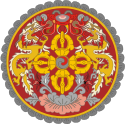 |
||||
 Brunei Brunei |
Absolute | Hereditary Line of succession to the Bruneian throne Succession to the throne of Brunei is amongst the legitimate heirs and successors of Sultan Hashim Jalilul Alam Aqamaddin. The sons of Royal wives take precedence over the sons of commoners.... |
|||||
 Cambodia Cambodia |
Constitutional | Hereditary and elective Line of succession to the Cambodian throne Succession to the Cambodian throne is determined by the Royal Council of the Throne as the King does not have the power to appoint an heir to the throne. In order to succeed to the Cambodian throne persons must be a member of the Cambodian Royal Family, of thirty years of age and be a descendent of... |
 |
||||
 Canada Canada |
Constitutional | Hereditary Line of succession to the British Throne The line of succession to the British throne is the ordered sequence of those people eligible to succeed to the throne of the United Kingdom and the other 15 Commonwealth realms. By the terms of the Act of Settlement 1701, the succession is limited to the descendants of the Electress Sophia of... |
 |
||||
| Constitutional Monarchy of Denmark The monarchy in Denmark is the constitutional monarchy of the Kingdom of Denmark, which includes Denmark, Greenland and the Faroe Islands.As a constitutional monarch, the Queen is limited to non-partisan, ceremonial functions... |
Hereditary Line of succession to the Danish Throne Denmark used a system of male-preference primogeniture until 2009. The male preference cognatic primogeniture was changed in favour of an absolute primogeniture... |
 |
|||||
 Grenada Grenada |
Constitutional Monarchy of Grenada The monarchy of Grenada is a system of government in which a hereditary monarch is the sovereign of the Grenadas. The present monarch of Grenada is Queen Elizabeth II... |
Hereditary Line of succession to the British Throne The line of succession to the British throne is the ordered sequence of those people eligible to succeed to the throne of the United Kingdom and the other 15 Commonwealth realms. By the terms of the Act of Settlement 1701, the succession is limited to the descendants of the Electress Sophia of... |
N/A | ||||
 Jamaica Jamaica |
Constitutional Monarchy of Jamaica The Monarchy of Jamaica is a constitutional system of government in which a hereditary monarch is the sovereign and head of state of Jamaica, forming the core of the country's Westminster-style parliamentary democracy... |
Hereditary Line of succession to the British Throne The line of succession to the British throne is the ordered sequence of those people eligible to succeed to the throne of the United Kingdom and the other 15 Commonwealth realms. By the terms of the Act of Settlement 1701, the succession is limited to the descendants of the Electress Sophia of... |
 |
||||
 Japan Japan |
Constitutional | Hereditary Line of succession to the Japanese throne The line of succession to the Japanese throne is the list of all people that may once become Emperor of Japan.The following is the current order of succession to the Japanese throne:... |
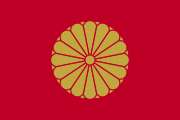 |
||||
 Jordan Jordan |
Constitutional | Hereditary Line of succession to the Jordanian throne Line of succession to the Jordanian throne is the line of people who are eligible to succeed to the throne of the Hashemite Kingdom of Jordan. The succession is regulated by Article 28 of the Constitution of Jordan.... |
|||||
 Kuwait Kuwait |
Constitutional | Hereditary and elective Line of succession to the Kuwaiti throne Succession to the throne of Kuwait is limited to the descendants of Mubarak Al-Sabah. The reigning Emir must appoint an heir apparent within one year of his ascension to the throne; the nomination must also be approved by a majority of members of the National Assembly... |
— | ||||
 Lesotho Lesotho |
Constitutional | Hereditary and elective Line of succession to the Lesothan throne The "Lesotho" throne is properly referred to as the Basotho throne, Basotho being the collective name for citizens of the southern African kingdom of Lesotho. The "Lesotho" throne is properly referred to as the Basotho throne, Basotho being the collective name for citizens of the southern African... |
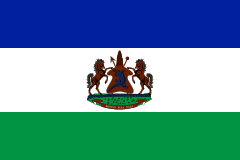 |
||||
 Liechtenstein Liechtenstein |
Constitutional | Hereditary | 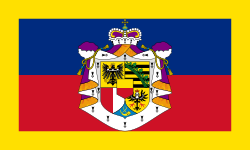 |
||||
 Luxembourg Luxembourg |
Constitutional | Hereditary | 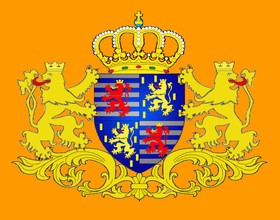 |
||||
 Malaysia Malaysia |
Constitutional | Elective and hereditary |  |
||||
 Monaco Monaco |
Constitutional | Hereditary Line of succession to the Monegasque Throne The line of succession to the Monegasque throne passes to the descendants of the reigning Prince of Monaco in accordance with male-preference primogeniture... |
|||||
 Morocco Morocco |
Constitutional | Hereditary Line of succession to the Moroccan throne The present King of Morocco is Mohammed VI. Article 20 of the Moroccan constitution of 1996 states that the Moroccan Crown and the constitutional rights thereof shall be hereditary and handed down, from father to son, to descendants in direct male line and by order of primogeniture among the... |
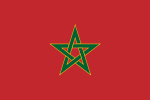 |
||||
| Constitutional Monarchy of the Netherlands The Netherlands has been an independent monarchy since 16 March 1815, and has been governed by members of the House of Orange-Nassau since.-Constitutional role and position of the monarch:... |
Hereditary Line of succession to the Dutch Throne The 1814 constitution stated that the oldest son of the monarch would succeed him , followed by the monarch's brother or his son. Only when there would be a complete lack of males in his near family, would the oldest daughter of the monarch succeed him... |
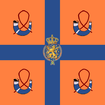 |
|||||
 New Zealand New ZealandRealm of New Zealand The Realm of New Zealand is the entire area in which the Queen in right of New Zealand is head of state. The Realm comprises New Zealand, the Cook Islands, Niue, Tokelau and the Ross Dependency in Antarctica, and is defined by a 1983 Letters Patent constituting the office of Governor-General of New... |
Constitutional | Hereditary Line of succession to the British Throne The line of succession to the British throne is the ordered sequence of those people eligible to succeed to the throne of the United Kingdom and the other 15 Commonwealth realms. By the terms of the Act of Settlement 1701, the succession is limited to the descendants of the Electress Sophia of... |
 |
||||
 Norway Norway |
Constitutional | Hereditary Line of succession to the Norwegian Throne Since 1990, absolute primogeniture has been applied in Norway. Crown Prince Haakon Magnus is currently the heir apparent.-Law of succession:In 1990 the Norwegian constitution was altered, granting absolute primogeniture to the Norwegian throne, meaning that the eldest child, regardless of gender,... |
 |
||||
 Oman Oman |
Absolute | Hereditary Line of succession to the Omani throne In Oman the eldest son of the reigning Sultan succeeds on his death. In the absence of a male heir, the reigning Sultan may nominate a brother or other male relative from amongst the descendants of Sultan Said bin Sultan. The current Sultan Qaboos of Oman has no children and has indicated that once... |
 |
||||
 Papua New Guinea Papua New Guinea |
Constitutional Monarchy of Papua New Guinea The monarchy of Papua New Guinea is a system of government in which a hereditary monarch is the sovereign of Papua New Guinea. The present monarch of Papua New Guinea is Queen Elizabeth II. Papua New Guinea share the Sovereign with a number of Commonwealth realms... |
Hereditary Line of succession to the British Throne The line of succession to the British throne is the ordered sequence of those people eligible to succeed to the throne of the United Kingdom and the other 15 Commonwealth realms. By the terms of the Act of Settlement 1701, the succession is limited to the descendants of the Electress Sophia of... |
N/A | ||||
 Qatar Qatar |
Absolute | Hereditary Line of succession to the Qatari throne The order of succession as the Ruler of Qatar is determined by appointments within the Al Thani family.The current Emir of Qatar, Sheikh Hamad bin Khalifa Al Thani , has appointed his fourth son, Sheikh Tamim Bin Hamad Al Thani , as Heir Apparent on 8 August 2003, this after his older brother... |
N/A | ||||
 Saint Kitts and Nevis Saint Kitts and Nevis |
Constitutional Monarchy of Saint Kitts and Nevis The monarchy of Saint Kitts and Nevis is a system of government in which a hereditary monarch is the sovereign of Saint Kitts and Nevis. The present monarch of Saint Kitts and Nevis is Queen Elizabeth II. Saint Kitts and Nevis share the Sovereign with a number of Commonwealth realms... |
Hereditary Line of succession to the British Throne The line of succession to the British throne is the ordered sequence of those people eligible to succeed to the throne of the United Kingdom and the other 15 Commonwealth realms. By the terms of the Act of Settlement 1701, the succession is limited to the descendants of the Electress Sophia of... |
N/A | ||||
 Saint Lucia Saint Lucia |
Constitutional Monarchy of Saint Lucia The monarchy of Saint Lucia is a system of government in which a hereditary, constitutional monarch is the sovereign of Saint Lucia. The present monarch of Saint Lucia is Queen Elizabeth II. Saint Lucia share the Sovereign with a number of Commonwealth realms... |
Hereditary Line of succession to the British Throne The line of succession to the British throne is the ordered sequence of those people eligible to succeed to the throne of the United Kingdom and the other 15 Commonwealth realms. By the terms of the Act of Settlement 1701, the succession is limited to the descendants of the Electress Sophia of... |
N/A | ||||
 Saint Vincent and the Grenadines Saint Vincent and the Grenadines |
Constitutional Monarchy of Saint Vincent and the Grenadines The monarchy of Saint Vincent and the Grenadines is the constitutional system of government in which a hereditary monarch is the sovereign and head of state of Saint Vincent and the Grenadines, forming the core of the country's Westminster-style parliamentary democracy. The Crown is thus is the... |
Hereditary Line of succession to the British Throne The line of succession to the British throne is the ordered sequence of those people eligible to succeed to the throne of the United Kingdom and the other 15 Commonwealth realms. By the terms of the Act of Settlement 1701, the succession is limited to the descendants of the Electress Sophia of... |
N/A | ||||
 Saudi Arabia Saudi Arabia |
Absolute | Hereditary and elective Line of succession to the Saudi Arabian Throne The order of succession to the throne of Saudi Arabia is determined by, and within, the House of Saud. It follows agnatic seniority, but a prince may be surpassed or another elevated. The Allegiance Council was created in 2006 to facilitate the royal transfer of power.King Abdullah is the current... |
 |
||||
 Solomon Islands Solomon Islands |
Constitutional | Hereditary Line of succession to the British Throne The line of succession to the British throne is the ordered sequence of those people eligible to succeed to the throne of the United Kingdom and the other 15 Commonwealth realms. By the terms of the Act of Settlement 1701, the succession is limited to the descendants of the Electress Sophia of... |
N/A | ||||
 Spain Spain |
Constitutional | Hereditary Line of succession to the Spanish Throne Spain uses the system of primogeniture. Male children succeed before female, and otherwise in order of age. If descent from male children does not exist , a female and her heirs succeed. Dynasts who marry against the express prohibition of the king or the Cortes are excluded from the succession... |
 |
||||
 Swaziland Swaziland |
Absolute | Hereditary and elective Line of succession to the Swazi throne In Swaziland, no king can appoint his successor. Only an independent special traditional Council called the Liqoqo decides which of the wives shall be "Great Wife" and "Indlovukazi"... |
 |
||||
 Sweden Sweden |
Constitutional | Hereditary Line of succession to the Swedish Throne The line of succession to the Swedish throne is determined by the Swedish Act of Succession. In 1980 Sweden adopted equal primogeniture, meaning that the eldest child of the monarch, regardless of gender, takes precedence in the line of succession... |
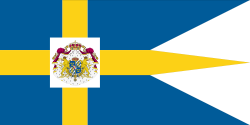 |
||||
 Thailand Thailand |
Constitutional | Hereditary 1924 Palace Law of Succession The Palace Law on Succession, BE 2467 governs succession to the Throne of the Kingdom of Thailand, under the ruling House of Chakri. The law was established during the reign of King Vajiravudh to systematically resolve previous succession controversies... |
 |
||||
 Tonga Tonga |
Constitutional | Hereditary Line of succession to the Tongan Throne The order of succession to the throne of Tonga is laid down in the 1875 constitution of the south Pacific island nation. This constitution specifies that the succession is confined to the descendants of King Siaosi Tāufaāhau Tupou I, through his son Crown Prince Tēvita Unga and his son Prince... |
|||||
 Tuvalu Tuvalu |
Constitutional Monarchy of Tuvalu The monarchy of Tuvalu is a system of government in which a hereditary monarch is the sovereign of Tuvalu. The present monarch of Tuvalu is Queen Elizabeth II. Tuvalu shares the sovereign with 15 other Commonwealth realms... |
Hereditary Line of succession to the British Throne The line of succession to the British throne is the ordered sequence of those people eligible to succeed to the throne of the United Kingdom and the other 15 Commonwealth realms. By the terms of the Act of Settlement 1701, the succession is limited to the descendants of the Electress Sophia of... |
N/A | ||||
 United Arab Emirates United Arab Emirates |
Mixed | Elective and hereditary | |||||
 United Kingdom United Kingdom |
Constitutional Monarchy of the United Kingdom The monarchy of the United Kingdom is the constitutional monarchy of the United Kingdom and its overseas territories. The present monarch, Queen Elizabeth II, has reigned since 6 February 1952. She and her immediate family undertake various official, ceremonial and representational duties... |
Hereditary Line of succession to the British Throne The line of succession to the British throne is the ordered sequence of those people eligible to succeed to the throne of the United Kingdom and the other 15 Commonwealth realms. By the terms of the Act of Settlement 1701, the succession is limited to the descendants of the Electress Sophia of... |
  |
||||
 Vatican City Vatican City |
align="center" | | Absolute | Ex officio Papal conclave A papal conclave is a meeting of the College of Cardinals convened to elect a Bishop of Rome, who then becomes the Pope during a period of vacancy in the papal office. The Pope is considered by Roman Catholics to be the apostolic successor of Saint Peter and earthly head of the Roman Catholic Church... |
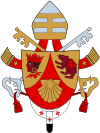 |
See also
|

